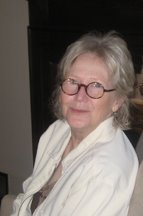A LOOK AT WORDS AND NUMBERS
I suppose most writers are fascinated by words, as I am.
Recently in a poem I wrote, I take the position that everything that exists (whether physical, mental, emotional) has a
word. In essence, you can’t think of something (much less write about it) if
there’s no word for it. My hope is that readers will realize this premise is
questionable. And as an aside, is it possible that language limits our
imagination?
IS THERE A DIFFERENCE?
We communicate not just with words, but with numbers. I’ve
told my sons to think of numbers as a different language. Some people hold that
we developed numbers just as we developed words in a language. There are other
people who will argue that there’s a difference. Numbers are not invented, they’re
discovered.
ALL THINGS ARE NUMBER
So said Pythagoras. That is to say, the physical world, everything
you can see, smell, taste, feel, or think is quantifiable. And with the discovery,
or maybe it’s the invention, of calculus, even relationships and movement can
be communicated with numbers.
UNIVERSALITY OF NUMBERS
Now that I’m into numbers over my head, I’ll back out by saying
that math was my worst subject in school. Nonetheless, our fascination with
numbers and our dependence on them has never been greater. Seems we’re on our
way to proving Pythagoras correct.
DATA ADDICTS
For the entertainment of mathematicaphiles, The Week
magazine provides a column titled “The Bottom Line.” The shear amount of data
collection and analysis is mind-boggling. Numbers relay meanings and can affect
our opinions, maybe even change our mind. Several random samples from The
Week:
25% of unemployed persons are age 25 and
over
64% of Spotify’s most popular podcasts in
2024 were men
The average commuter spends a record 63
hours a year stuck in traffic
Consumers plan to spend an average of $890/person
on holiday gifts, food, etc.
A book titled Book of Unusual Knowledge, a Christmas
gift, states that it took about 30 million hours for Stone Age workers to build
Stonehenge. Who figured that out and how?
SCIENTIFIC EVIDENCE?
Now I’m getting around to another point. More and more research and/or scientific
findings depend on data collection and not infrequently on polls taken of participants.
ARE THESE FACTS OR DATA DRIBBLE?
From The Times (UK) researchers analyzed data from
86,00 adults across 27 countries to find that learning a second language may
help slow aging. (As if the only variable in 86,000 people is the number of
languages they speak.)
Ultra-processed foods made up 55% of the food Americans ate
from 2021 to 2023 according to the Centers for Disease Control. (What’s the
definition of ultra-processed food?)
Researchers at the Univ. of British Columbia discovered that
people are happier doing activities when sharing with others. Some 41,000
participants were quizzed on how happy they were doing three activities. (How
happy? How reliable is a person’s opinion of their own happiness? And what if
they’re asked on a bad day?)

























.jpeg)












